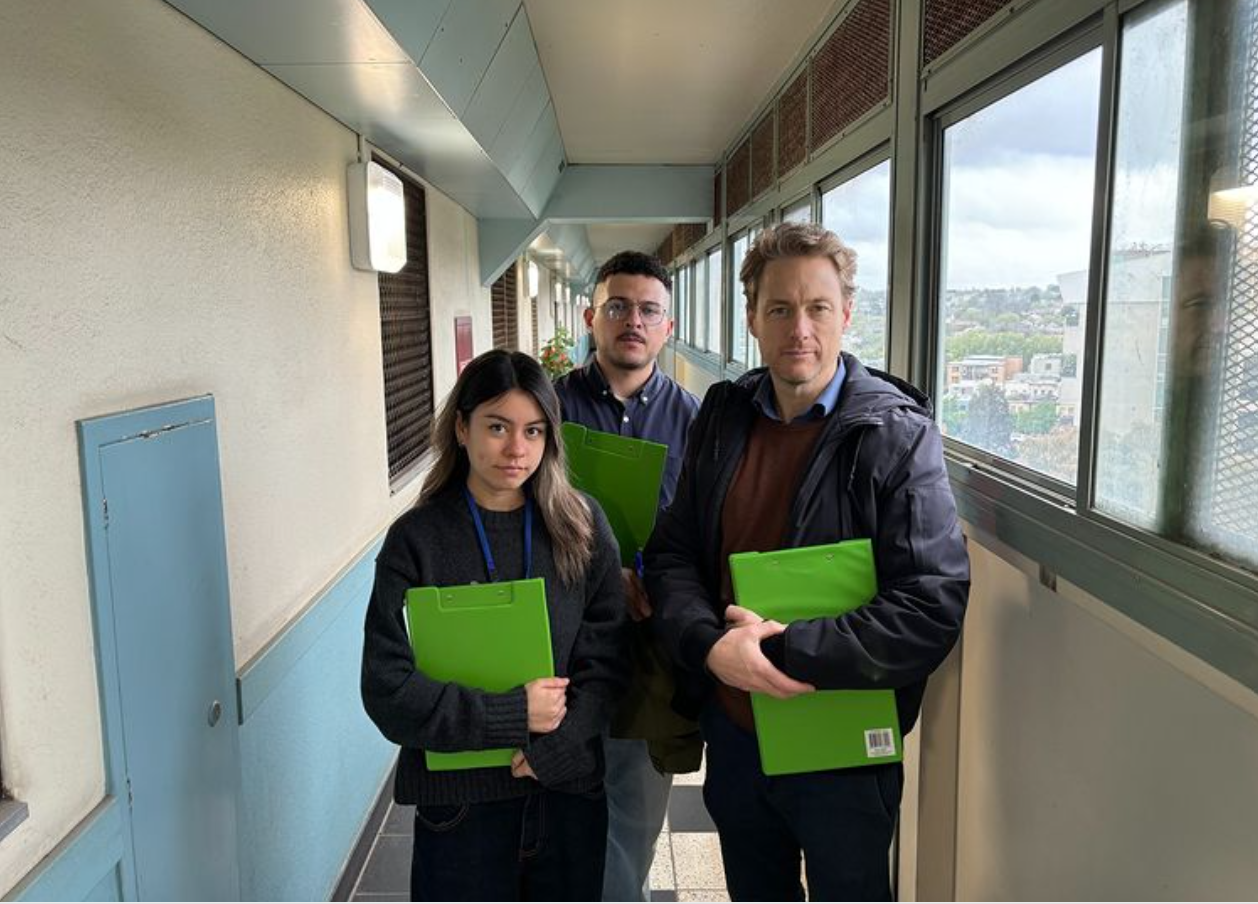It is my pleasure to rise to speak to this matter of public importance today. If you had listened to the debate here and no doubt very much a lot of the public debate and the debate on social media, which I am sure we all spend far too much time on, you would know there are only two answers to have in terms of how the government’s response has been to this pandemic: we are either living under the tyrannical yet incompetent rule of Dictator Dan or it is ‘I stand with Dan. He can do no wrong, and how could you possibly criticise him or ask difficult questions of him in this moment?’. Well, of course, neither is right. For my mind, at the heart of this issue—
Ms Britnell: Tell us more, Sam.
Mr HIBBINS: Well, I am more than happy to. From our perspective we have supported the health-led response to this pandemic. You cannot compare what is happening in Australia and even in Victoria with the second wave to what is occurring overseas, where governments have not listened to the experts and have not put in place appropriate restrictions, and we are just seeing how the virus is now rampaging again, a second wave, through Europe, through America and through other countries. So certainly we have supported the health-led response. On the debate over restrictions by so many people—I know we are all frustrated—the reality is this debate over restrictions has been going since the very beginning. If we had not listened to the experts, the situation would have been a lot worse. Quite frankly the name-calling, the hysteria, the Trumpian language, the bat-killing response have not actually been helping to hold the government to account for their failings—and there have been failings—they have actually been making it harder. The public debate over this, where you can be either totally on one side or totally on the other, has just been completely counterproductive.
So whilst we have supported the health-led response, the reality is that there have been holes in the government’s response that you could drive an absolute truck through. And the key issue here has been the underfunding and the under-resourcing and the inadequate structure of our public health and human services.
If the only change being debated publicly or the only outcome that we can possibly see for the future is whether the Premier stays in his seat or the health minister stays in their seat, if that is the only change we are looking for, there will be a political outcome—there will be a political winner and a political loser. But if we do not actually change and get a properly funded public health system and a properly resourced public health and human services department, all Victorians will be losers out of this. That is where we need to focus our efforts. In saying that I do not want to blame the workers at DHHS, the people who are working hard. The responsibility to properly fund the Department of Health and Human Services sits squarely with the Premier and the government of the day. It is their job to make sure that our public health system and our human services, who look after us, are properly funded.
We heard the proposer, the member for Carrum, wax lyrical, and I will note she was genuine in saying just how important the public health of Victorians is to our being. Well, if that is the case, then we need to have a properly funded public health system. When you look at the failings that we have had in the government’s response to this pandemic—from hotel quarantine to contact tracing to the lack of PPE for healthcare workers and the outbreaks amongst them, the failure to properly engage with multicultural communities, the failed management of the public housing lockdown and the failure to get the hardship payments into people’s hands just as the second wave was starting—this all points to a health and human services system that was, quite frankly, stretched at the beginning of this pandemic and was then not able to meet the needs of our community and respond effectively to this pandemic. It is not just me saying this, not just the Greens—the experts, the health experts and the doctors, are all telling us this.
The reality is DHHS has been facing cuts for the best part of a decade. We had the sustainable government measures and the cuts of the Baillieu government, but then of course under this government they have faced millions of dollars of efficiency dividends in literally every single budget, except of course the election year budget, and that was due to be ramped up before this pandemic. There has been some information coming out about the extent of the effects of these cuts, but who knows what has been going on over these years as this department has been essentially cut to the bone. These departments are essential for the public health and wellbeing of our population but also for dealing with meeting the needs of the most disadvantaged in our community. Personally, as someone who comes from a social services background, I cannot think of a more important department when it comes to the health and wellbeing of our population and the absolute importance of it being properly funded and properly resourced.
When we look at the issues around hotel quarantine, it is good to see that there is an acknowledgement now across all sides of politics that outsourcing, using a private for-profit company with a casualised workforce, to undertake a major public health initiative like hotel quarantine is not appropriate and that the use of well-trained public servants, like police, like health workers, is. It is similar with contact tracing. It is clear that our contract-tracing system has been underfunded and under-resourced and is now having to rely on outsourcing, which is not the case in other states. And it is not just the number of the contact tracers you have, it is the quality. It is the ability to scale up and it is the technology. Now we have got a patchwork system of some in house, some outsourced and some other providers, and it is just suffering from years of not being properly funded. We know that even before this pandemic, within the health department they were calling on the government to bring this up to scratch, and it has been a failure that it has not happened.
We can look at the PPE for healthcare workers and the massive outbreak amongst healthcare workers. It was worse than what the government said at the time. The member for Brunswick rightly raised in question time yesterday that hospitals in some parts of the world have actually achieved low to zero rates of healthcare worker infections. This has been because of the lack of PPE. It still beggars belief that we are not getting N95 fit-tested masks made available to all those that need them. We have had a constant stream of healthcare workers telling us that they are not getting the PPE that they need because there simply has not been enough. It has been a supply issue. There have been breakdowns in the supply chain and inconsistency across health settings, and that also comes from the very devolved nature of Victoria’s health system.
There was a failure of outreach to ethnic communities. When we look at where the major outbreaks have been in that second wave, in those communities it is about engaging with the multicultural communities and making sure that they can work directly with their communities to get the information into people’s hands. This has been really critical.
The Premier has talked about the casualised workforce, but it was also very important that we actually reached out to those people in those jobs. Again, as I mentioned before, there was a failure to get hardship payments into people’s hands in those first few weeks when it was announced. The public housing lockdown was so poorly managed—again, failing to engage properly with the community groups on the ground. People did not get the care they needed, medical needs were not met, and it was avoidable. The government did not engage with community groups. There was no pandemic plan in place, and the Premier was wrong to suggest that no-one would be left behind and to tell everyone that everything was okay when it was not okay.
So to conclude: clearly there are gaps in the government’s response. We have overwhelmingly supported the health-led response and the restrictions that have been put in place. We have got to get on top of this virus. That is the number one priority. That is what we need to do. But in terms of the gaps in the government’s response and what the changes are that we need now and in the future, the outcome of these failings is that we need a better funded, better resourced, restructured health and human services department that can look after the health of the public and the needs of our most vulnerable people both in normal times and during the public health emergency. That needs to be the outcome. The cutbacks and the devolved structure have not worked and need to change.



